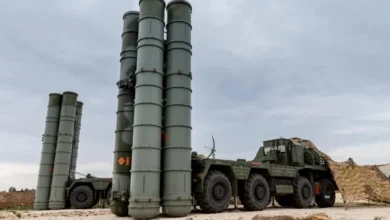India And China Agree To Patrol LAC Leading To Disengagement

- India lost 20 soldiers, including a Colonel, in the Galwan incident of June 15, 2020, which was characterized as a physical altercation that did not involve the use of firearms.
- The confrontation was the most lethal since the 1962 war and resulted in a substantial decline in China-India relations.
In a significant development, the government announced on Monday that India and China had reached an agreement to resume patrolling along the Line of Actual Control (LAC) in eastern Ladakh, which would result in disengagement. The announcement was made prior to Prime Minister Narendra Modi’s arrival in Russia for the 16th BRICS Summit.
Foreign Secretary Vikram Misri stated that an agreement has been reached on patrolling arrangements along the Line of Actual Control in the India-China border area as a result of the discussions that have taken place over the last several weeks. This arrangement is resulting in disengagement and, ultimately, a resolution of the issues that arose in these areas in 2020.
The patrolling will resume at two friction points along the LAC: Demchok and Depsang Plains.
The official responded that diplomatic and military discussions between India and China have been ongoing in recent weeks when asked about a potential bilateral meeting with Chinese President Xi Jinping on the sidelines of the BRICS Summit. We continue to coordinate the timing and specifics of any bilateral engagements.
The situation along the LAC has remained tense since the heated clash between Indian and Chinese soldiers in the Galwan Valley in June 2020.
GALWAN CRASH
India lost 20 soldiers, including a Colonel, in the Galwan incident of June 15, 2020, which was characterized as a physical altercation that did not involve the use of firearms. Despite the fact that China has only acknowledged four casualties, it is believed that as many as 40 PLA personnel lost their lives in the conflict.
The confrontation was the most lethal since the 1962 war and resulted in a substantial decline in China-India relations. This event had far-reaching implications for global geopolitics, regional stability, and bilateral relations, as well as profound shifts in the geopolitical and strategic calculus of both nations.







Facebook Comments